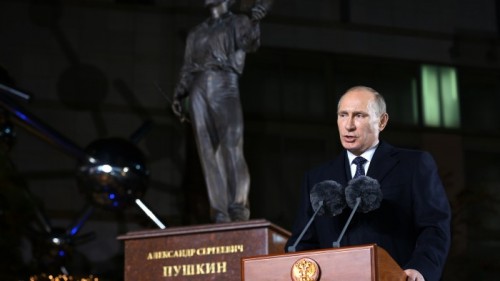
Putin’s nationalism problem
The crisis in Ukraine has produced a new narrative about Vladimir Putin’s leadership. In contrast to the stated modernising goals of his first two presidencies – the achievement of greater state efficacy and the improvement of living standards and prosperity for ordinary Russian citizens – Putin has been recast as the saviour of the Russian nation. This new narrative includes a mission to protect the citizens of the ‘Russian World’ that live beyond the borders of the Russian Federation. In some analysis, this has led to parallels with Slobodan Milosevic’s political journey in the former Yugoslavia (Whitmore, 2014).
Yet, while Vladimir Putin has shown strong patriotic instincts throughout his political career, he is not a natural nationalist. In an article titled ‘Russia: The Ethnicity Issue,’ which Putin published in January 2012 ahead of the presidential election, his ambiguous support for ethnically-based nationalism was apparent. He warned about the dangers that ethnic chauvinism posed to the territorial integrity of the Russian state: ‘I am convinced that the attempts to preach the idea of a “national” or monoethnic Russian state contradict our thousand-year history,’ he averred, ‘this is a shortcut to destroying the Russian people and Russian statehood, and for that matter any viable, sovereign statehood on the planet’ (Nezavisimaya Gazeta, 2014). Moreover, his regime’s relationship with the nationalist leadership in eastern Ukraine, and their ideological backers in Russia, has not always been cordial during the Ukrainian conflict. Putin’s commitment to the creation of a new territory, ‘Novorossiya,’ which would lead to the breakup of Ukraine, has been questioned by nationalist ideologues and militia leaders throughout the crisis (Sonne, 2014).
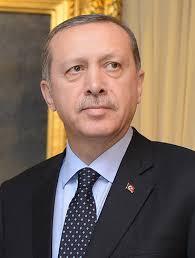
The perils of Turkish presidentialism
With Recep Tayyip Erdoğan sworn in as Turkey’s first popularly elected president last August, the debates on adopting a presidential system have once again come to the forefront in the run-up to the Turkish general election in June. The most important implication of the election will be whether it will lead to a formal move toward presidentialism in Turkey’s constitution.
Prior to the election, Turkey’s political system was admittedly complex. In 2007, Abdullah Gül, Erdoğan’s predecessor, was the last to be elected under the former system, in which parliament elected the president. He took office following a strained process between the Justice and Development Party (AKP), the Turkish Armed Forces, and the Republican People’s Party (CHP). The first presidential election in April was boycotted by the CHP. The Chief of the General Staff of the army made statements expressing the wish for a sincerely secular president, and published an e-memorandum warning against emerging disputes regarding the secular nature of the Turkish republic in the context of the election. Eventually, the AKP called an early general election in July, after which the presidential election was re-held in August.
As a further response to the crisis, the AKP held a referendum in October, ensuring the popular election of the president. Thus, Turkey remained a parliamentary system with a ceremonial president until the first popular presidential election was held, and Erdoğan was elected last year. Now, the system has become semi-presidential with both a popularly elected president and a prime minister responsible to the legislature. Crucially, the president does not hold substantial executive powers.

Time is running out for the Transatlantic Trade and Investment Partnership
In 2013, the European Union and the United States launched negotiations for a comprehensive trade agreement (the Transatlantic Trade and Investment Partnership, TTIP). TTIP’s objective is to facilitate market access for goods and services across the Atlantic by cutting tariffs and trade restrictions (like the Buy American Act), harmonizing regulatory standards, and setting common trade rules, including on custom policies and protected geographical indications.
The agreement is negotiated in a difficult situation. Europe’s weight in the global economy is declining, whereas the US has recovered from the crisis and is striking a parallel deal with the ASEAN countries in the Far East.
Europe’s economic prosperity depends on trade more than that any other region’s in the world. International trade (import and export) accounts for 87% of EU GDP (against 30% in the US, and 50% in China). But what TTIP is about is the future, not the present. This is the last opportunity for the EU and the US to set the production, environmental, investor and consumer standards for the global economy.
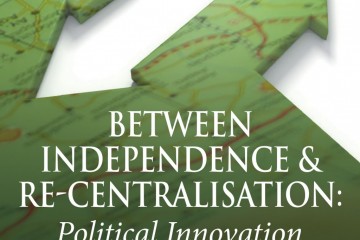
The Metropolitanisation of Nationality? City-regions, autonomy and the territorial state
The recent plebiscite on Scottish independence has triggered a much wider debate in the UK about the organisation of state power in institutional and territorial terms.
In particular, the role and economic position of the main cities vis-à-vis the state have raised headlines about ‘cities going independent’, such as ‘Devo Met’ (The Economist, 25 Oct 14). This not only continues the strong focus on the economic dimension of statehood and its territorial and institutional manifestation, but also that of identity and the sense of community (commonality). No longer, so it seems, does nationality operate automatically through the ‘nation state’ as a territorial and governmental entity. Instead, metropolitanism is encouraging, perhaps requiring, a ‘reterritorialisation of politics’ (Sellers and Walks, 2008). This growing emergence of an urban (metropolitan) dimension to national (and international) discourses on shared values, imaginations and common purpose has come to challenge the nationalisation thesis formulated as part of ‘political modernisation’ (Hofferbert and Sharkansky, 1971), and its primary focus on territorial states as expressions of an existing and cohesive civil society, or as ‘nationalisers’ seeking to shape a national identity (Brubaker, 1995). This once prevailing thesis propagates national contexts as dominant, hegemonial conditioning factors which reach across states, including regional and local identities and discourses, whether urban or not. The understanding of nationality has thus been viewed from a top-down perspective of discursive nationality, and corresponds with the territorial view that cites, being down the scalar hierarchy from the state, are automatically an integral part of that – bigger – entity – geographically, institutionally and discursively.
Such, in effect, triple hierarchisation – where territory, institutional power structures and discourse of identity and belonging (communality) sit in parallel hierarchical arrangements – is now being challenged by a growing urban/metropolitan voice stepping out of the seemingly homogenous sonority of a national discursive ‘backcloth’. This may appear as a reverse step to the integrative, even homogenising, effects of nationalising politics (Caramani, 2004), seeking to overcome spatial and societal differences in identities and sense of belonging. From such a (conventional) perspective, states are seen as the ‘natural’ rallying points of national discourses of self-determination and their geographic manifestation.

Between Independence & Re-centralisation: Political Innovation in an Age of Devolution
In 2014 the push for devolution became a major political issue. Scotland remains in the UK, but only after last minute bargaining devolved further powers to Holyrood. This has encouraged calls for more devolution of powers to Scotland, Wales, Northern Ireland and for the formation of an English parliament. George Osborne’s Autumn Statement proves that Westminster is listening. Meanwhile, MPs and local governments want more powers entrusted to local authorities. Manchester is following Bristol’s lead in appointing a mayor.
The UK is not alone in this trend. Emboldened by the experience in Scotland, Catalonia held an independence vote of its own, even if unrecognised by the government in Madrid. Legal or not, that vote may also boost efforts in the Basque Country, Bavaria and Flanders.
While these votes may prove unsuccessful, the tension surrounding them will linger. The issues depend on the contextual consequences of the increasing trend towards devolution. There are two forces operating in two different directions: on the one hand, city/regional small nations are demanding Independence from their referential nation-states, while on the other hand, nation-states themselves are re-centralising or decentralising their structures and powers.
Over the coming months, this Special Series will focus on the diverse angles to this debate by identifying and emphasising certain innovative and thought provoking case studies for the purpose of comparison.
Posts will cover topics like the re-scaling of nation-states, constitutional change, the right to decide, independence movements, the federal EU hypothesis, the Europe of Regions approach, democratic participation and civic nationalism in relation to city-regions.

The push and pull of the world’s most dangerous migration route – what’s really behind the flock of thousands to Europe these days?
The Mediterranean Sea is today’s most dangerous border between countries not at war with each other. Just last week, 300 persons departing Libya on four rubber dinghies have gone missing at sea, after drifting for days without food and water. News reports in the past six months have regularly commented upon the rising number of persons disembarking on Italy’s coastline – benefiting from its search and rescue operation Mare Nostrum. Despite the increase in new arrivals from 33,000 to 200,000, the life-saving mission has now been discarded. Italian policy makers believe Mare Nostrum is as responsible for overcrowded reception centres as it is for the rising number of persons risking their lives at sea. But is it truly to blame for the surge? Because more than 50 per cent of arrivals are either Syrian or Eritrean, news commentators have provided some other potential explanations. Some point to the protracted conflict in the Middle East, whilst others highlight the strain on neighbouring Jordan, Lebanon and Iraq in continuing to receive thousands of Syrian refugees. “Poverty in Africa” is mentioned occasionally, and for the better informed, an oppressive military regime and indefinite conscription in Eritrea are to blame. Yet these supposed ‘causes’ of the latest wave in irregular migration to Europe are speculative at most and have in fact been ongoing for many years now.
The irregular and mixed movement of persons across borders is arguably the most pressing international issue of our time, second perhaps only to terrorism. Yet the response of nations is too often reactionary and punitive towards individuals making the move, causing policies like Mare Nostrum to be cut short. By pinpointing the multiple ‘Push’ and ‘Pull’ factors at play in the regions concerned it is possible to generate fresh insight on the debate on South- North migration.
‘Push Factors’
For Syrians and Eritreans on the move, the situation at home is the key reason for flight. In Syria, there are immediate threats to life, regardless of which side of the conflict you are on. In Eritrea, an oppressive military regime and a lifeless economy force several thousand to walk across its land borders every month. Ruthless and indiscriminate conscription waves can also augment departures, as can changes in border surveillance, including the reported end to the notorious ‘shoot to kill’ policy.
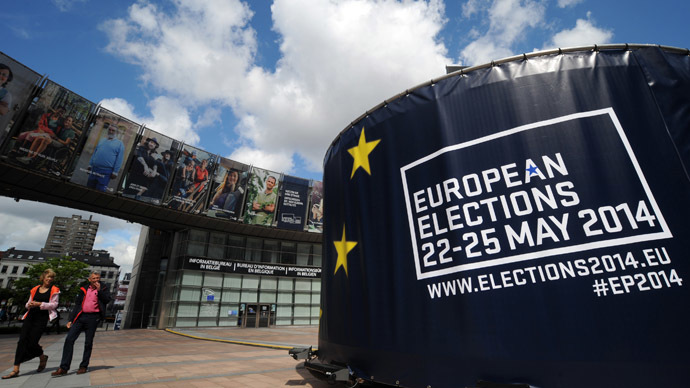
Populism vs. Technocracy? How political parties adapt to new dominant narratives.
Over the last decades, populism and technocracy have attracted a great deal of public attention and generated a lively scholarly debate. As it has recently been argued, they have emerged as the two dominant discourses on the European political scene. As the 2014 European elections clearly showed, even traditional, mainstream political parties increasingly rely on either or both these narratives. One insightful example is the discursive practices of Matteo Renzi’s Democratic Party during the Italian electoral campaign.
After his rise as party leader and then Italy’s youngest ever Prime Minister, Renzi has become a favourite of the international press. As early as 2010, when he was still mayor of Florence, the Tuscan politician proved himself an extremely skilled communicator. His idea of ‘rottamare’ (‘scrapping’) the entire political class had an extremely wide impact on public opinion and soon became a slogan for all those who wanted to contest the status quo in Italian politics. The growing support he received from the public convinced him to run for his party’s leadership primaries in 2012 and then, successfully, in 2013. Nowadays, Renzi’s PD embodies an arguably renewed organisation. The internal opposition has been gradually marginalised and the re-compacted majority has developed a political discourse based on pragmatism, hope for the future and the need for change. In particular, one can observe how the PD has gradually assimilated populist and technocratic discursive strategies by examining the ways in which it deals with a key issue such as the European Union.
The populist mode. According to a growing body of literature, typical examples of populist discursive practices include the reliance upon Manichean oppositions, romanticised and essentialist visions of the people, appeals to the multitude whilst excluding others and extreme simplification and moralisation (Wodak 2003).
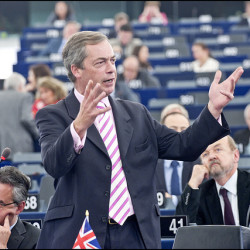
Where is British conservatism today: UKIP, conservative, libertarian or something else?
As was said in the opening paragraph of this series, a well-rehearsed interpretation of UKIP is that they are a grouping to the right of the current Conservative party, dissatisfied with the old party’s failure to stand up to Europe and its perceived leftwards shift under Cameron. In this view, UKIP are, to quote a recent Labour party campaign, “more Tory than the Tories”. There is certainly something to be said for this claim. Leading figures in the party, as well as party activists, are former members of the Conservative party, not least Nigel Farage himself. While we await their 2015 election manifesto, a number of policies that have been proposed recently also seem to point in the direction of an ultra-Tory agenda, such as plans to abolish inheritance tax. But UKIP’s own constitution brands it as a “democratic, libertarian party”, while its most famous recent acquisition, Douglas Carswell, describes himself on his own twitter account as a “free trade Gladstonian liberal”. What are we to make then of UKIP’s ideology and identity?
Firstly, it is only right to point out that UKIP, like almost all political parties, represents a coalition of different views. In particular, it displays a similar kind of mix of conservatism, liberalism and libertarianism that we find in the Conservative party. It is probably fair to say that libertarianism is a term less familiar to British political culture than to that of the United States, but British conservatives (including members of the Conservative party) often like to claim the mantle of liberalism and individual liberty, usually relating these ideas to the promotion of free enterprise, reduced state intervention in the economy and individual responsibility. That Mrs. Thatcher was an ardent admirer of Gladstone is no secret, and Simon Heffer has gone as far as to argue that she is best understood as a latter-day champion of Gladstonian liberalism, rejecting many of the values that had come to be associated with Toryism in the nineteenth and twentieth centuries, such as paternalism and protectionism. It is worth noting that Gladstone himself began life as a Tory.
But once again, it might be argued that this merely attempts to reduce modern conservatism—encompassing UKIP—to free-market liberalism, when in fact it can be clearly distinguished from liberalism in other crucial respects. First of all, patriotism and nationhood are clearly central to both the contemporary Tory party and to UKIP. While both express outward-looking views on free trade, they also wrap themselves unashamedly in the flag and bang the drum for British values and virtues wherever possible. On the issue of mass immigration, while the Tory party are more divided, UKIP are, of course, vociferously opposed, pointing to the need to withdraw from the EU as the only way to guarantee full control over migrant entry into the country. Compare this to the liberal internationalism of Nick Clegg, an economic liberal in key respects, but alone amongst the three main party leaders in his outspoken support for the EU. Other UKIP policies are also suggestive of an ultra-conservative agenda rather than a liberal one, including the promotion of grammar schools and tougher sentences for prisoners. Then there are those amongst the party’s rank-and-file who occasionally crop up to embarrass the leadership, like councillor David Silvester, who, earlier this year, claimed that recent flooding had been the result of the government’s legalisation of gay marriage. While there is no suggestion that this particular view is widespread within the party, it nonetheless hints at an undercurrent of extreme, evangelical social conservatism that feels quite alien in secular Britain, but is perhaps not quite as distant as we like to think.









